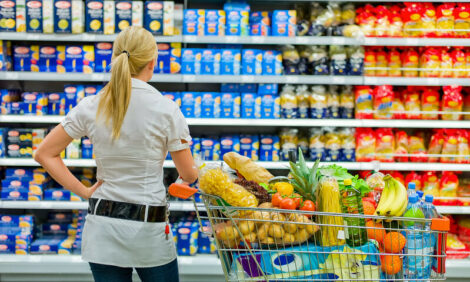



Coalition Targets Improving Indonesian Relations and Biosecurity
AUSTRALIA – The Coalition government’s agricultural policy has expressed intentions to help the cattle industry through increasing biosecurity and resolving the live exports issue with Indonesia.Targeted funding will see a ‘Biosecurity Flying Squad’ established and import risks and quarantine assessments improved, while diplomatic efforts work at the ‘repair’ of trading relations with Indonesia.
This follows the Australian public’s decision to elect Tony Abbott as Prime Minister of Australia on September 18 after six years under the Australian Labor Party.
Mr Abbott’s coalition, of Liberal and National, has also pledged to act on the live exports issue, snubbing the Labor Party for the ban in June 2011.
The manifesto states that the live export ban hit the cattle markets, farmers and rural communities and ‘devastated’ the sector in the North.
To resolve relations with Indonesia following the Rudd-Gillard Government period in charge, regular meetings will be held with leading exporters and bureaucracy will be reduced.
An Indo-Pacific business exchange programme is scheduled to provide a two way trading platform with Indonesia.
This is to be done via discussing biosecurity systems, alternative agriculture, agribusiness and culture.
This week, the Northern Territory Minister for Primary Industry and Fisheries, William Von Holthe, launched the Territory's four year Industry Development Plan.
Taking the territory to 2017, the report centres on reducing 'red and green tape' and developing new opportunities for the region's cattlemen and primary producers.
This will involve developing northern abattoirs and eventually opening up alternative markets for the territory.
Furthermore, a climate change message has come from the department to help primary producers get involved in climate change and carbon economies.
This contrasts with national policy which will see part of the government proposal includes the promise to immediately rescind the carbon tax.
On the effects of the tax, Mr Abbott said: “This job-destroying tax is damaging for Australia’s manufacturers and processors, many of whom are under severe pressure from overseas competitors who do not have to pay the tax.”
He added the tax was a ‘reverse tariff’ on industry which limits competitiveness in Australian industry.
In particular, dairy, abattoir and sheep businesses have been underlined as sectors currently hard hit by carbon taxes within the agricultural sector.
“In 2011, a Senate Committee, based on Treasury modelling, concluded that the carbon tax would cut national income by $1 trillion by 2050 – an average of over $40,000 per person in today’s dollars,” said Mr Abbott.
“On the Government’s own figures, the carbon tax will see a 61 per cent decimation of aluminium production in Australia, a 44 per cent cut to alumina production, and a 21 per cent decline in iron and steel production.”
During Labor’s tenure Mr Abbott said that agriculture was neglected, adding that Labor’s agricultural funding was reduced from $3.8 billion to $1.7 billion since 2007.
The Coalition has said that a strong farming economy is good for the country and that Australia ‘should’ be a leading agricultural exporter and producer.
Current policy quotes the Australian Bureau of statistics stating: “Australia’s agriculture sector continues to be a significant contributor to our economy.
“The farming sector helps connect all Australians, both urban and rural through what it does and what it provides.”
Heading the funding behind the campaign is the release of A$100 million to deliver technological advances through Rural Development programmes and Development Corporations.
Further funding has been promised in $15 million of exports rebates to support ‘small exporters’ in paying for Export Certification registration costs.
TheCattleSite News Desk


